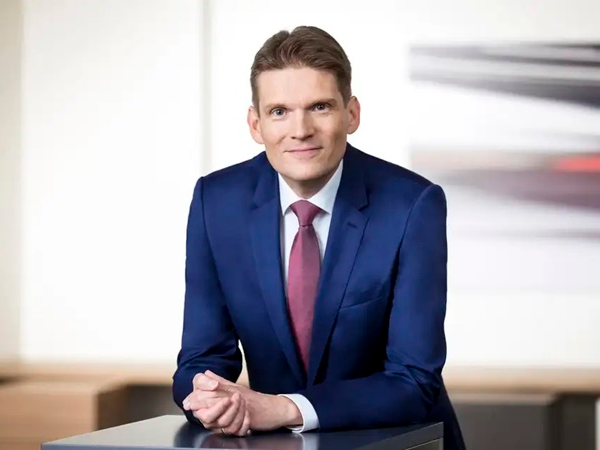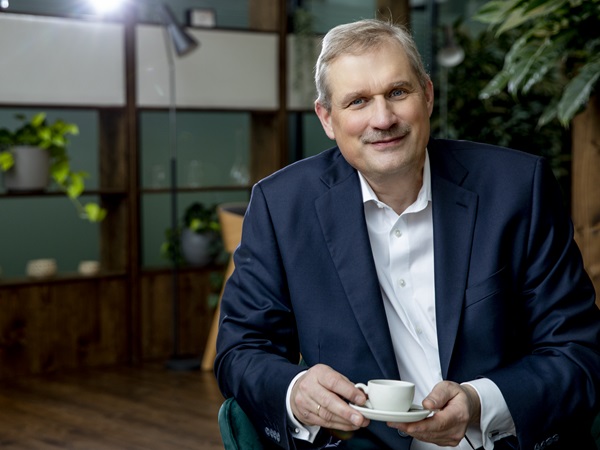Date: 27 May 2014
In doing so, he created a company model for the globally active optics and specialty glass companies ZEISS and SCHOTT that is still unique today. By establishing the Foundation, Abbe pursued his goal of continuing to run the companies ZEISS and SCHOTT independently of the personal interests of their respective shareholders in the future, assuming special responsibility for their employees and using the companies’ profits for charitable purposes, primarily to promote the sciences. The Carl Zeiss Foundation and its two companies wrote German industrial and social history by adopting this unique company model. ZEISS is a leading international company in the fields of optics and optoelectronics, while SCHOTT, a company that manufactures specialty glass products, is a global leader with many of the products it offers.
The German Chancellor Dr. Angela Merkel gave the ceremonial address at the festive event held to celebrate the 125th anniversary of the founding of the Carl Zeiss Foundation and praised both the Foundation and its companies. She noted that the Foundation Statute written by Ernst Abbe back in 1896 describes “the ideal model of responsible entrepreneurship.” Because his ideas flowed into social legislation later on, the Foundation Statute can be considered “an outstanding document of German economic and social history” she added. In reference to the companies, she said: “ZEISS and SCHOTT are known all over the world for their state-of-the-art technology ‘made in Germany.’ They are flagships of German business.” And due to their special company model, she also called them “exporters of the social market economy.”
.jpg)
Dr. Frank Heinricht, Chairman of the Board of Management of SCHOTT AG, explains the benefits that CERAN glass-ceramic cooktop panels offer to the German Chancellor Dr. Angela Merkel. Photo: SCHOTT
Great historic importance
The collaboration between Carl Zeiss, Ernst Abbe and Otto Schott in Jena at the end of the 19th century culminated in two dynamically growing optics and specialty glass companies whose shares were transferred over to the Carl Zeiss Foundation. In the Foundation Statute from 1896, Ernst Abbe granted employees social rights that were completely unheard of back then and didn’t become standard elements of German labor law until decades later. In fact, the Foundation has survived all of the crises in German history even until today, including the country’s division into East and West after World War II.
Foundation model allows for a long-term focus
As part of a comprehensive foundation reform, the companies ZEISS and SCHOTT were converted into legally independent stock corporations with the Carl Zeiss Foundation as the sole shareholder in 2004. They were thus given a modern form of Corporate Governance and the entrepreneurial freedom they needed to be able to function as globally active companies. Due to their unique ownership structure, ZEISS and SCHOTT are not subject to the pressures that publicly listed companies that must meet their shareholders’ demands for quick returns face. As Foundation companies, ZEISS and SCHOTT rely on sustainable portfolio strategies and long-term success instead.
.jpg)
German Chancellor Angela Merkel is fascinated with a historic ZEISS microscope and optical glasses from SCHOTT. From left to right: Minister Bauer, Dr. Kurz, Minister Christoph Matschie, and Christine Lieberknecht, Thuringian Prime Minister. Photo: SCHOTT
80 million euros in appropriations granted since 2007
The Carl Zeiss Foundation uses the dividends it receives from Carl Zeiss AG and SCHOTT AG to promote the sciences. In fact, it has granted 80 million euros in subsidies to German universities. This figure includes 12 million euros in special funding support to mark its 125th anniversary. The Carl Zeiss Foundation is thus of vital importance in promoting the sciences in Germany. Further information: www.carl-zeiss-stiftung-125jahre.de/english
About the Carl Zeiss Foundation
The Carl Zeiss Foundation is a Foundation that acts as a shareholder and the sole shareholder in the two Foundation companies Carl Zeiss AG and SCHOTT AG. It was founded in Jena by the physicist and mathematician Ernst Abbe in 1889. By founding the Foundation and publishing the Foundation Statute in 1896, Abbe pursued his objective of continuing to run the companies ZEISS and SCHOTT independently of the personal interests of their respective shareholders in the future, and using the companies’ profits to protect and support their employees, but also for charitable purposes, most notably to promote the sciences. The two Foundation companies were converted into the legal form of stock corporations in 2004 and are both internationally successful. The Carl Zeiss Foundation was able to use the dividends that were paid after this reform to offer programs aimed at promoting the sciences starting in 2007. Its support activities focus on scientific projects in the area of the natural sciences and engineering at universities in the three German states that either the Foundation or the Foundation companies are based in, namely Baden-Wuerttemberg, Rhineland-Palatinate and Thuringia.
About ZEISS
ZEISS is an international leader in the fields of optics and optoelectronics. The more than 24,000 employees of ZEISS generated revenue of about 4.2 billion euros in fiscal year 2012/13. Founded in 1846 in Jena, the company is headquartered in Oberkochen, Germany. ZEISS has been contributing to technological progress for more than 160 years. ZEISS develops and produces solutions for the semiconductor, automotive and mechanical engineering industries, biomedical research and medical technology, as well as eyeglass lenses, camera and cine lenses, binoculars and planetariums. ZEISS is present in over 40 countries around the globe with more than 40 production facilities, around 50 sales and service locations and over 20 research and development sites. Carl Zeiss AG is fully owned by the Carl Zeiss Foundation.
About SCHOTT
SCHOTT is an international technology group with 130 years of experience in the areas of specialty glasses and materials and advanced technologies. SCHOTT ranks number one in the world with many of its products. Its core markets are the household appliance, pharmaceutical, electronics, optics and transportation industries. The company is strongly committed to contributing to its customers’ success and making SCHOTT an important part of people’s lives with high-quality products and intelligent solutions. SCHOTT is committed to managing its business in a sustainable manner and supporting its employees, society and the environment. The SCHOTT Group maintains close proximity to its customers with manufacturing and sales units in 35 countries. Its workforce of 15,400 employees generated worldwide sales of 1.84 billion euros for the 2012/2013 fiscal year. SCHOTT AG, with its headquarters in Mainz (Germany) is owned by the Carl Zeiss Foundation.







Add new comment